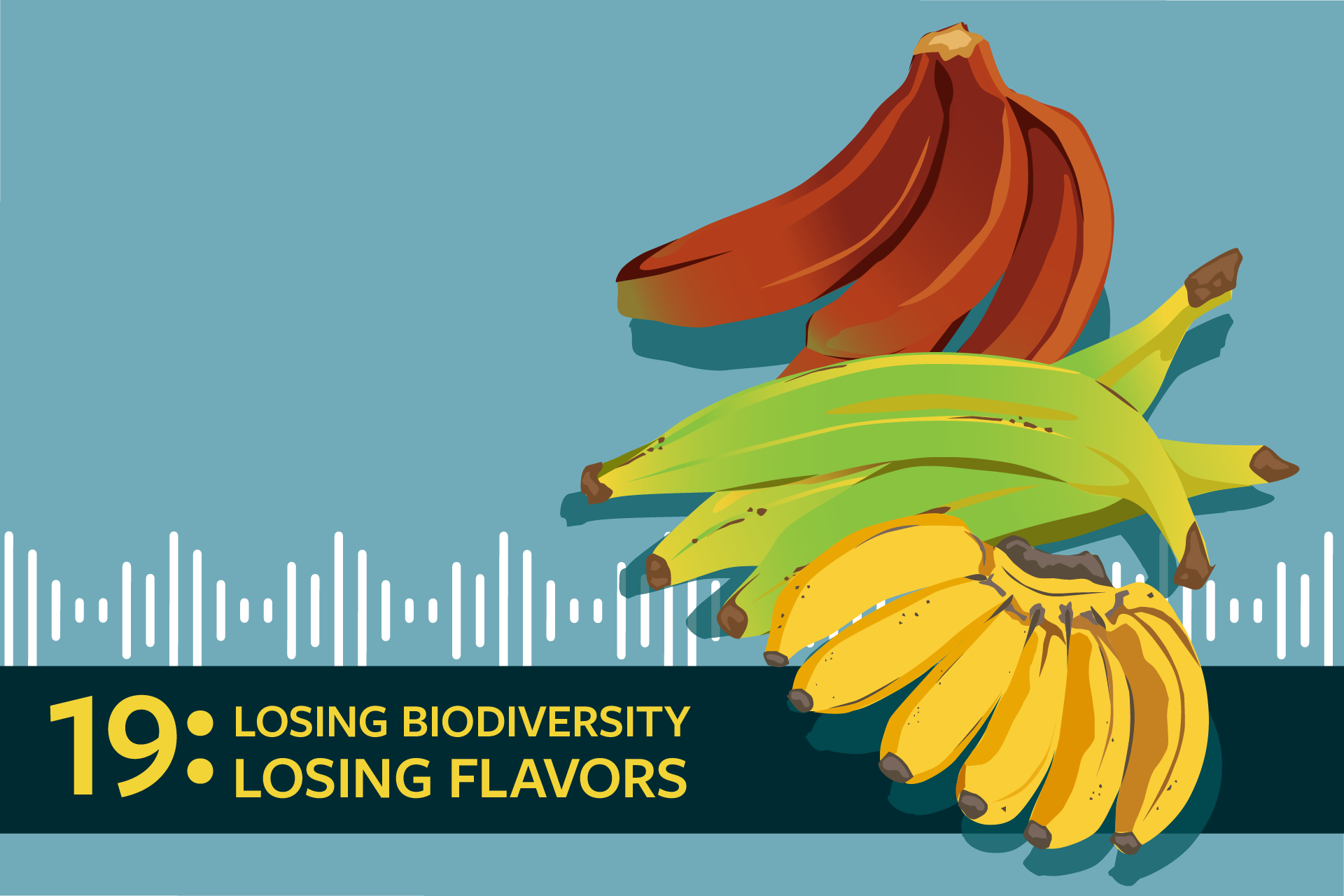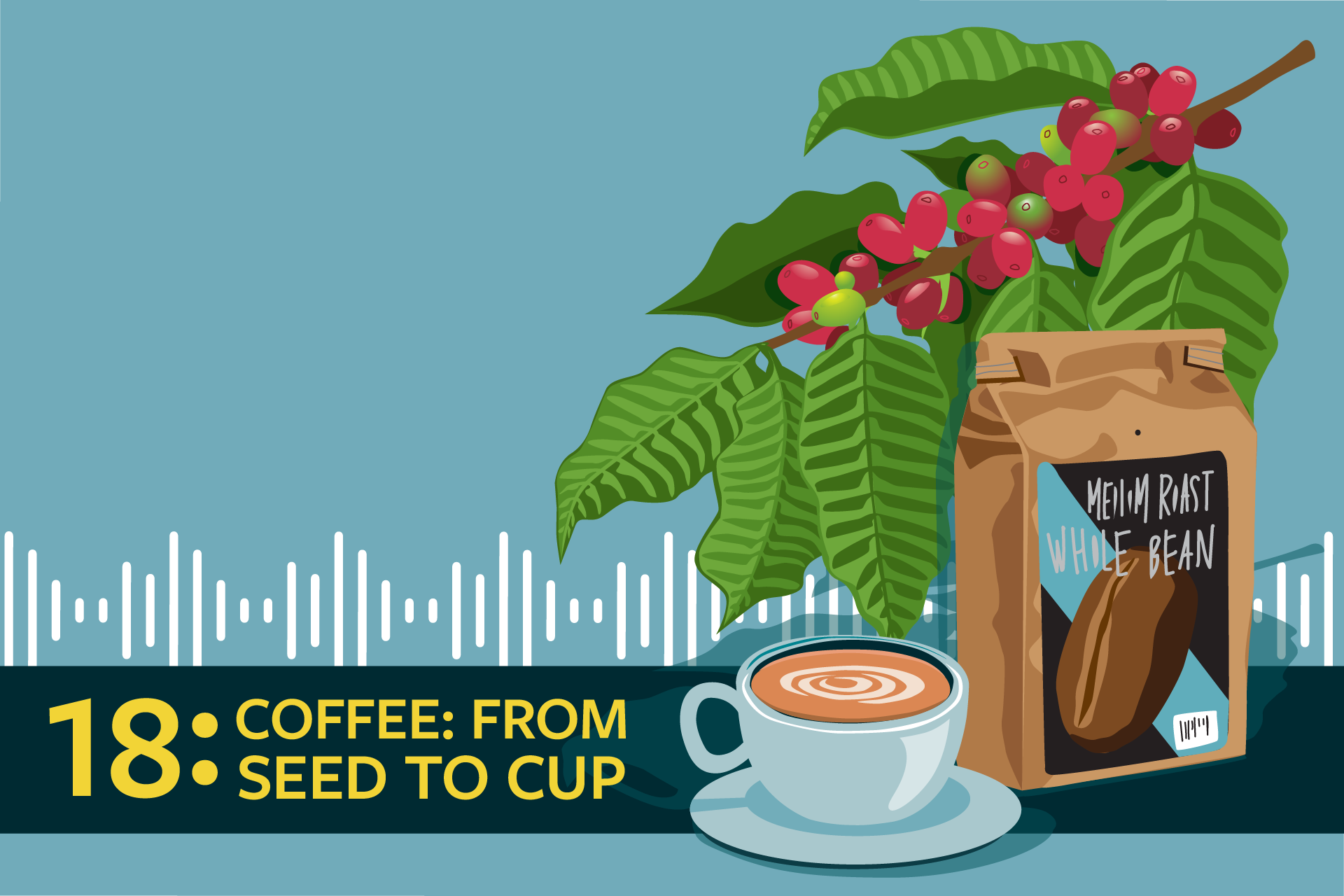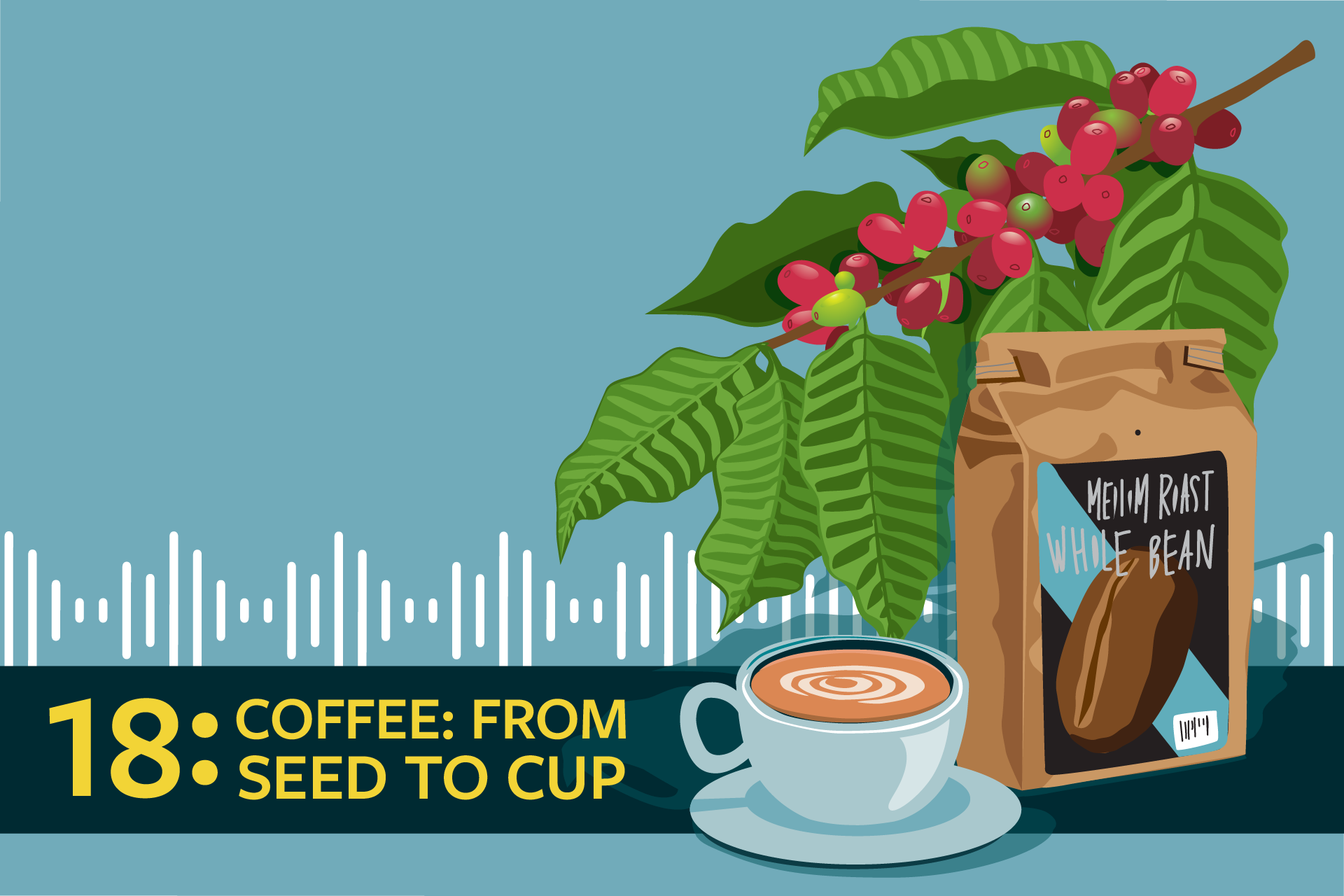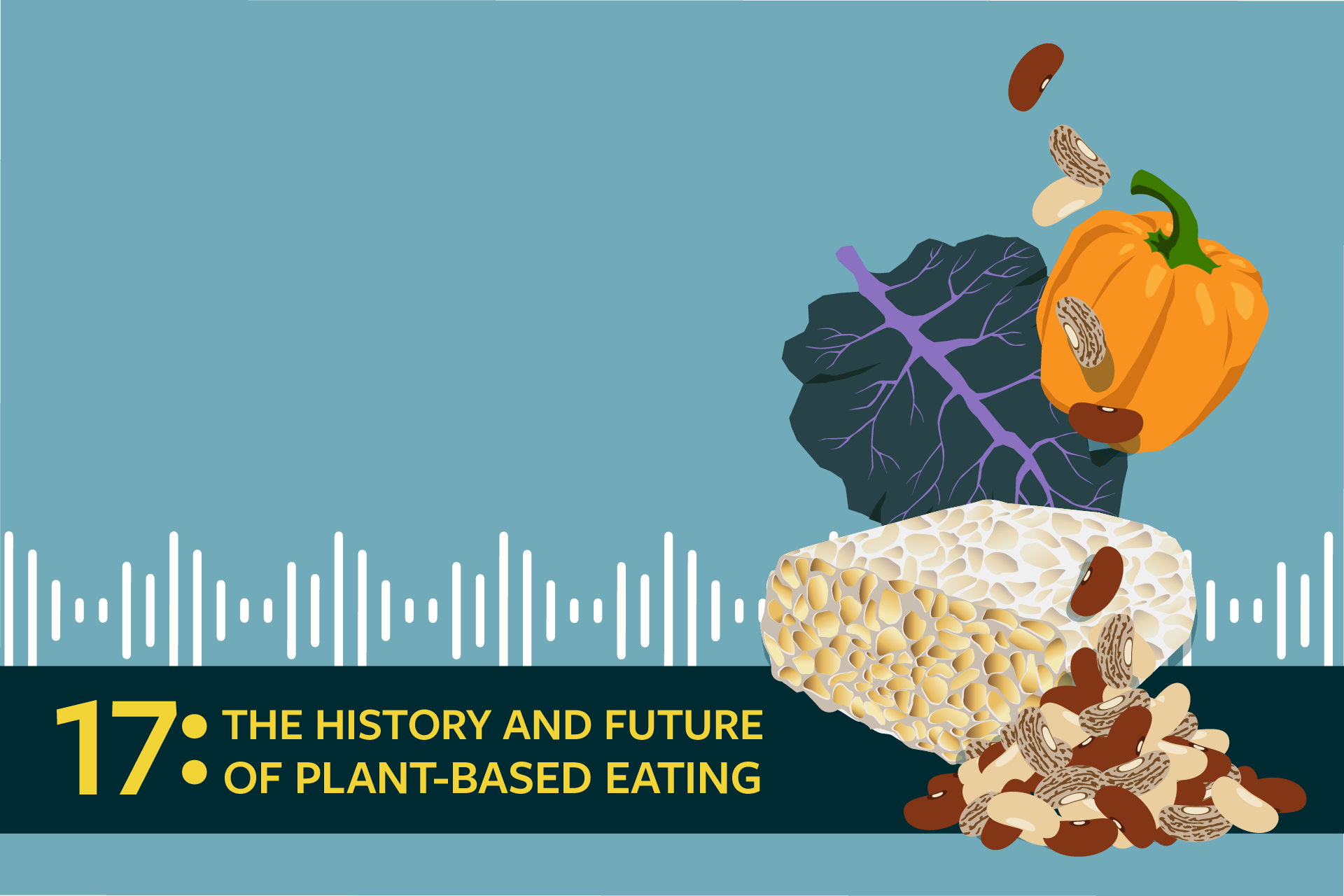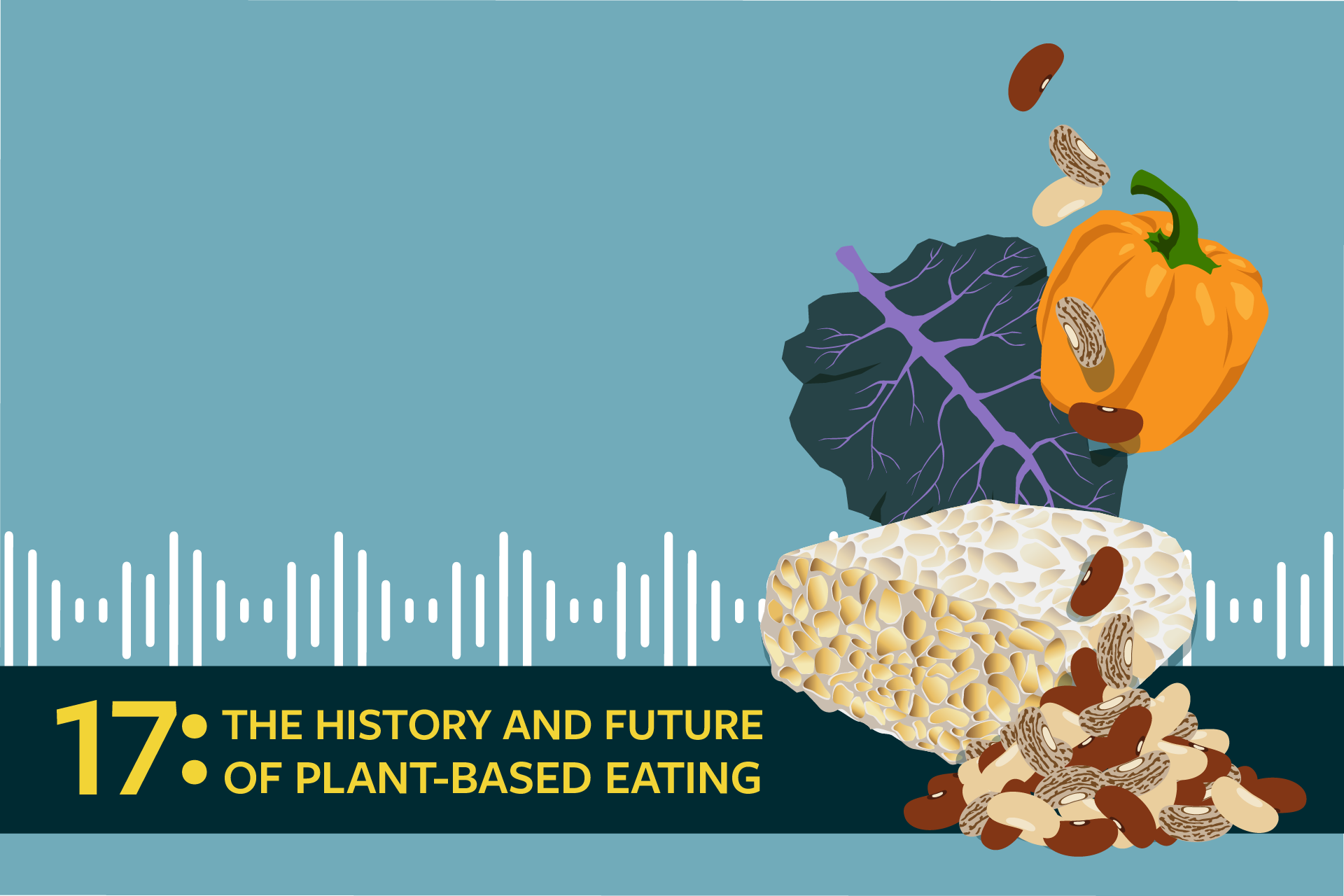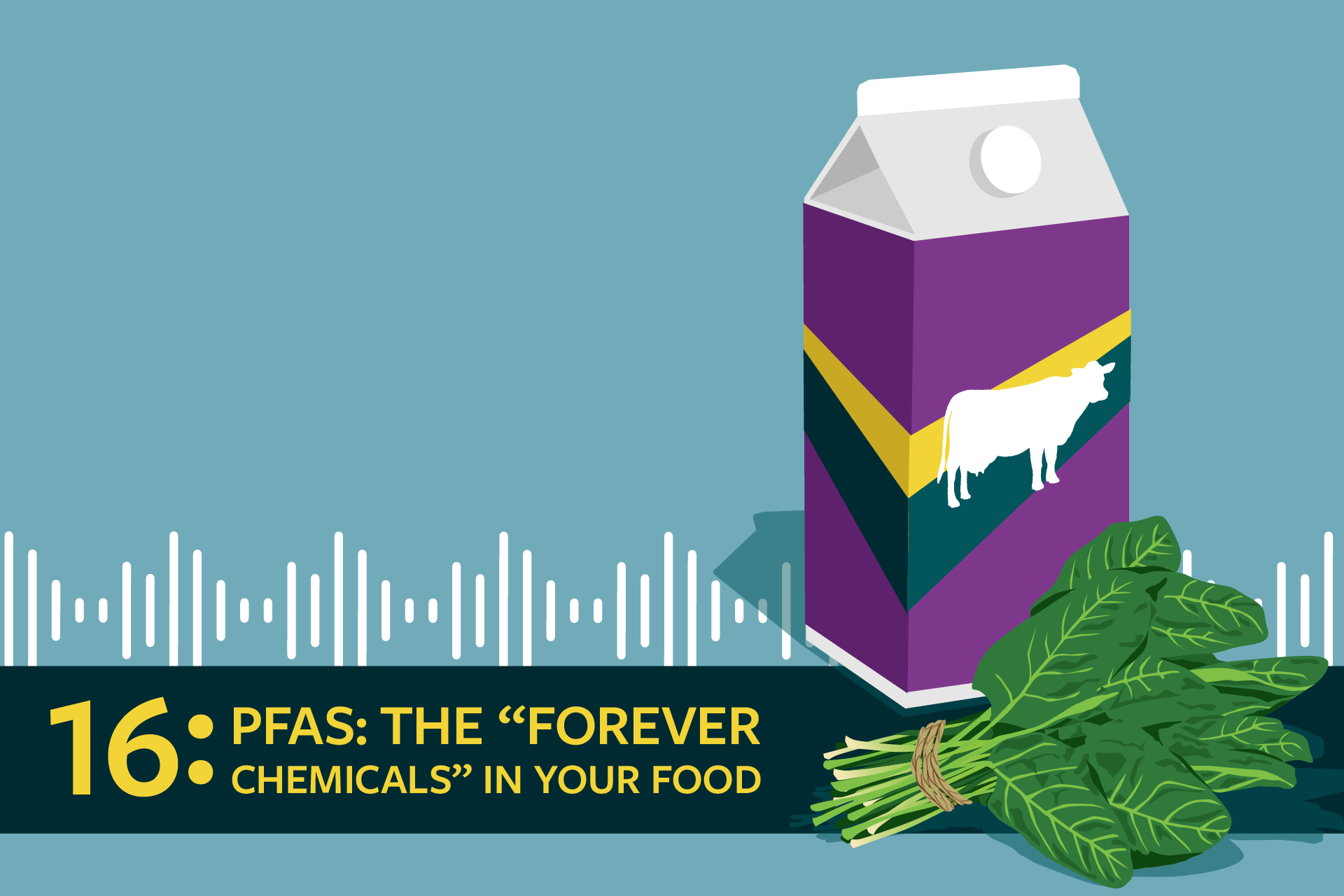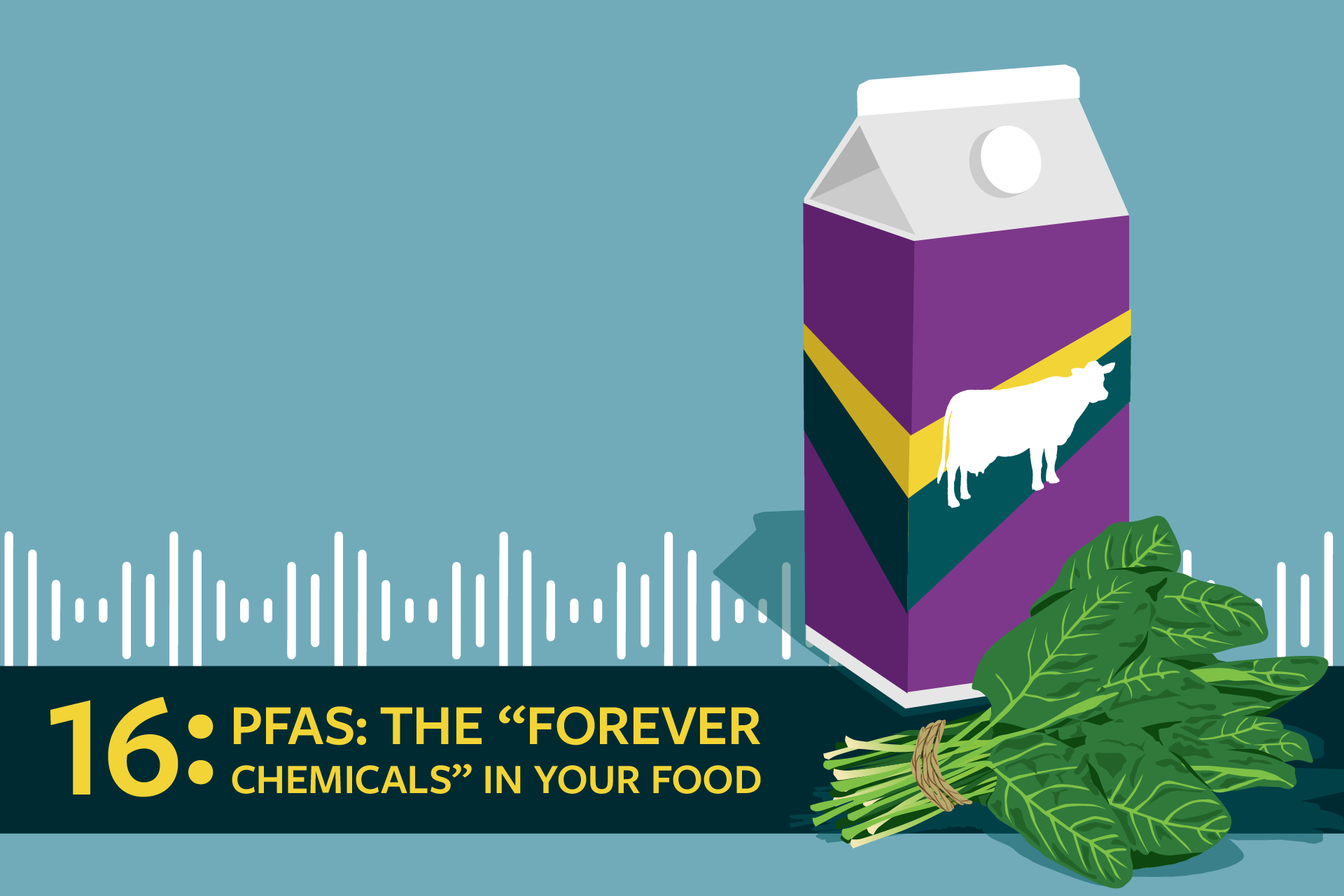What You’re Eating Podcast

Whether it’s a salad, a hamburger or your morning egg sandwich, the way your meal gets made has an impact. What You’re Eating is here to help you understand how your food gets to your plate, and see the full impact of the food you eat on animals, planet and people. Join host Jerusha Klemperer, Director of FoodPrint, as she dives deeper to uncover the problems with the industrial food system, and offer examples of more sustainable practices, as well as practical advice for how you can help support a better system, through the food that you buy and the system changes you push for.
From practical conversations with farmers and chefs to discussions with policy experts on the barriers to sustainability, FoodPrint’s podcast covers everything from the why to the how.
Subscribe wherever you find your podcasts.
CURRENT EPISODES
Episode 19: Losing Biodiversity, Losing Flavors
We can see the causes and effects of biodiversity loss all around us. Only one variety of banana or pineapple for sale in every grocery store. Or the miles and miles or corn and soy you pass as you drive the roads of Iowa, Minnesota and Illinois. Or the windshield effect: that there are far fewer dead insects on our windshields as we drive those country roads. We are right now in what’s being called “a biodiversity crisis,” in terms of the number of species we are losing and the increasing pace at which that loss is happening. The primary driver of species loss is our global agriculture system — in other words, the way we grow our food. And as we lose those varieties and breeds of animals and plants, we don’t just lose their genetics, we lose their unique tastes and flavors, too.
Episode 18: Coffee: From Seed to Cup
For conscious consumers, buying local products is a way to shorten the distance between us and what we eat or drink — and maybe even learn more about how our food was produced by talking to the people who made it. But what about something like coffee, which doesn’t grow anywhere near those of us living in the continental United States? Do you know where your coffee comes from? And if you do know what country it’s from — maybe from the bag or canister — do you know how it was grown? Or who grew it? Or how it transforms from a berry on a branch to the brown roasted “beans” you grind for your cup of Joe?
Episode 17: The History and Future of Plant-Based Eating
Maybe you’re concerned about climate change. Maybe you’re worried about how most livestock is raised in inhumane conditions. Or possibly you’re looking to make a change to your diet to be healthier. Whatever your reasons for eating less meat, whatever anyone’s reasons, it’s adding up to significant growth in what is now pretty universally being called “plant-based eating” — an umbrella term that includes everything from veganism to vegetarianism to flexitarianism to simply trying to eat a little less meat, dairy and eggs. But saying no to animal products is not a new idea. In this episode we speak with writer Alicia Kennedy about her new book, “No Meat Required: The Cultural History and Culinary Future of Plant-Based Eating” to learn more about how our vegetarian and vegan past can illuminate how we think about our plant-based future.
Episode 16: PFAS: The "Forever Chemicals" In Your Food
What do you know about a class of chemicals called PFAS? You can’t see them, and you can’t smell them, but they’re there, providing water-resistance and grease-proof protection to burger wrappers and pizza boxes. But PFAS are used for lots more than transporting takeout. They’re used by manufacturers in items ranging from raincoats to contact lenses to toilet paper. And the chemicals don’t just stay in these products. When we dispose of them, they end up in our soils and waterways. And the fact that they don’t break down has earned them the name “forever chemicals.” In this episode we head to Maine to learn more about PFAS and how they have ended up in well water, on farms, in food, and ultimately in people’s bodies.
MORE EPISODES
Sign up for the latest food news, and to get notified when each episode launches.
By subscribing to communications from FoodPrint, you are agreeing to receive emails from us. We promise not to email you too often or sell your information.


